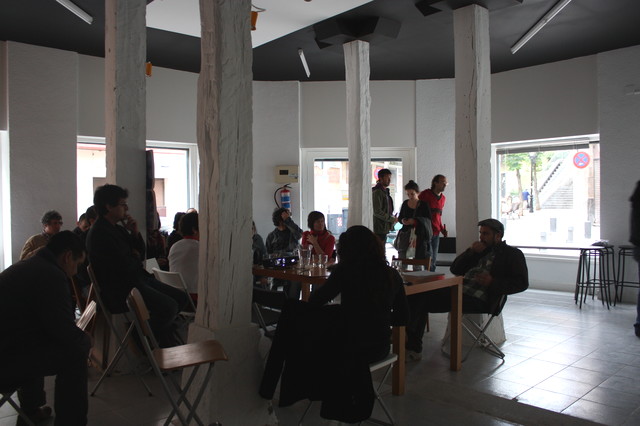Forms of formless knowledge
Laboratory of Comparative Declassification (LCD)
by
The LCD brings together researchers from the human sciences based in different countries around the world. The objective guiding the Laboratory’s activities implies thinking about the history of societies in a comparative way, giving priority to work with forgotten, lost, hidden or poorly distributed documents; documents that make it possible to open up new debates about the relations between the forms of socio-cultural hegemony and the different practices that update it or put it into question.
The written productions of different places, historical periods and languages, including all their images and graphic forms, are of special interest to this Laboratory. An important place is also held by the circulation and diffusion of social, political and historical information, a problem that is confronted through a process of searching, declassification, analysis and systematic diffusion of documents and sources. The aim in the declassification of documents is to review and reclassify official interpretations and the inherited foundations of apologetic historiography and sociology, breaking with the (self)satisfied gazes, the various types of conformism and authoritarianism that have tended to exclude and restrict the diversity and heterogeneity of the possible reflections on historical processes and the subjective and collective production of social realities.
The official organ of the LCD is the Annals of Declassification.
Ethnography and pornography of the indigenous body.
This talk should be (sub)titled “Variations on the body of Augusto Pinochet” since, starting from a couple of images of his body, we will retrace the postulates of the body in general as a bearer of meanings. The introduction of the pornographic variant seeks to open up the discussion to a whole field of corporal representations that works below the symbolic level of meanings and subjectivities, while functioning as a type of infrastructure of this symbolic level.
Pornography is thus posed as a point of view – rather than as a phenomenological or cultural-historical object – on the basis of which to read different limits and dimensions of representation. In this framework, we will explore the links between current pornography and ethnographic photography. This will situate us in a zone of indetermination that is well illustrated by the following regulation dictated in Chile in the 1980s by the National Television Committee: “Complete nudity, actual or in silhouette, will never be permitted,” except in “real scenes of the natives of distant lands.” This opens up a whole space for exploration in which, on the one hand, we will see the oscillation of the limits between human and animal, decent and indecent, naked and nudity. And, on the other, we will confront the question of the “truth” in the representation of a body (or a race), a truth stretching from nudity to disguise.
André Menard is a founding member of the LCD; an anthropologist, he was awarded a PhD by the Ecole des Hautes Etudes en Sciences Sociales and he is an academic at the Universidad de Chile.



